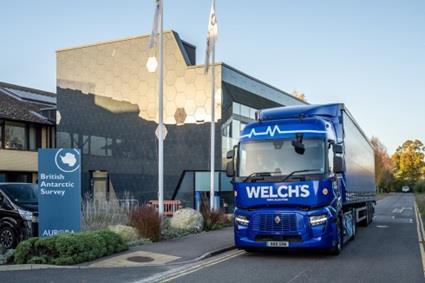
Industry and academia are joining forces to launch Project Jolt, a privately-funded demonstration programme to establish whether electric road freight transport, and in particular 44 tonne, electric trucks (eHGVs), can become commercially viable.
Top weight trucks account for 5% of the UK’s greenhouse gases and are among the hardest categories of vehicle to decarbonise.
A consortium of potentially 15 fleet operators, four truck manufacturers, several technology providers and two universities.will seek to answer the key question “how can the move to net zero be derisked?”
The consortium is led by leading battery electric proponent Prof David Cebon of the Centre for Sustainable Road Freight, while the fleet operators are drawn from across the logistics industry and include John Lewis Partnership, Nestle, William Jackson Food Group, Welch Group, Howard Tenens and Knowles Logistics.
“We are sharing trucks and chargers on a three month basis and testing a range of logistics operations, said Cebon. “We are pooling the anonymised data to develop new sustainable models of working. By sharing the data in this way, we maximise the learning. By sharing the resources, we minimise the costs for everyone involved.”
Some consortium members will using leased trucks and chargers while other eHGVs will be owned by fleet operators.
The immediate problems Project Volt seeks to address are ones of energy supply and the cost of the vehicle. However, for longer distances, weight constrained loads and flexible working, eHGVs experience “viability difficulties around payload, range, charging time and again, electricity supply”.
Transport sustainability lead for Nestle in The UK & Ireland Joe Hurst said that “Project Jolt is helping us make informed decisions about our future business plans.”
Justin Laney, partner and general manager, central transport, of the John Lewis Partnership, said: “The collaborative approach is allowing us to leverage our combined knowledge to create a rounded view of this exciting new technology”.
The project has its official launch on March 26 when FCZ will report in more detail.













